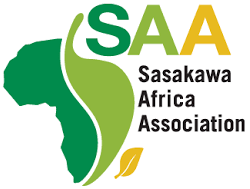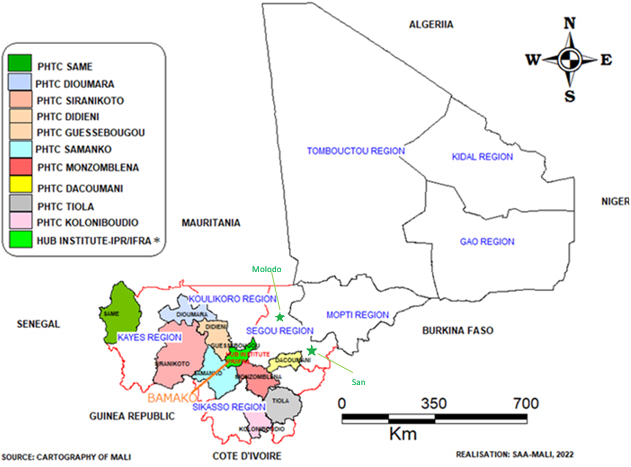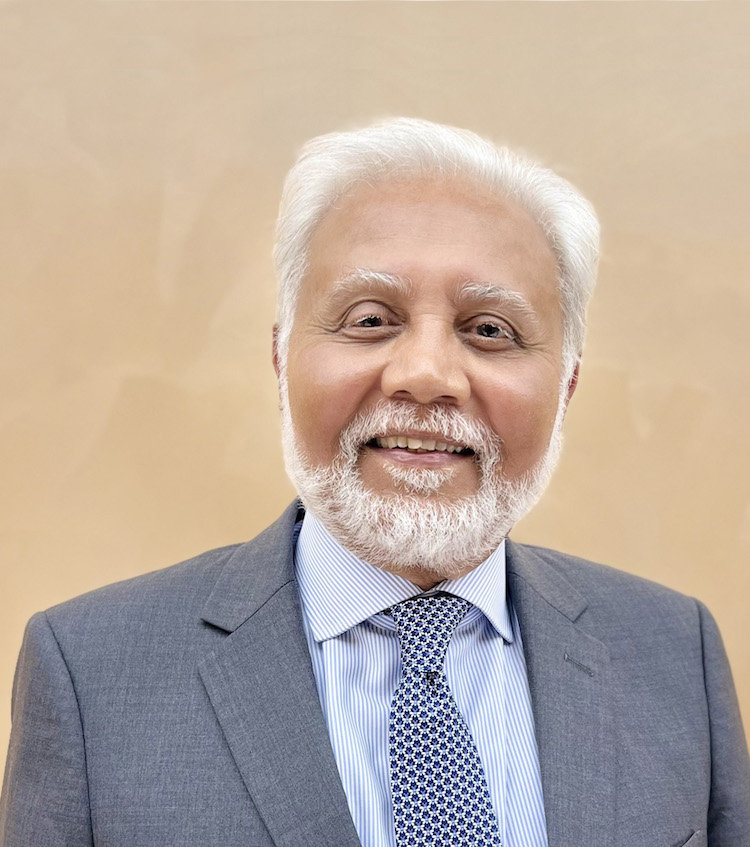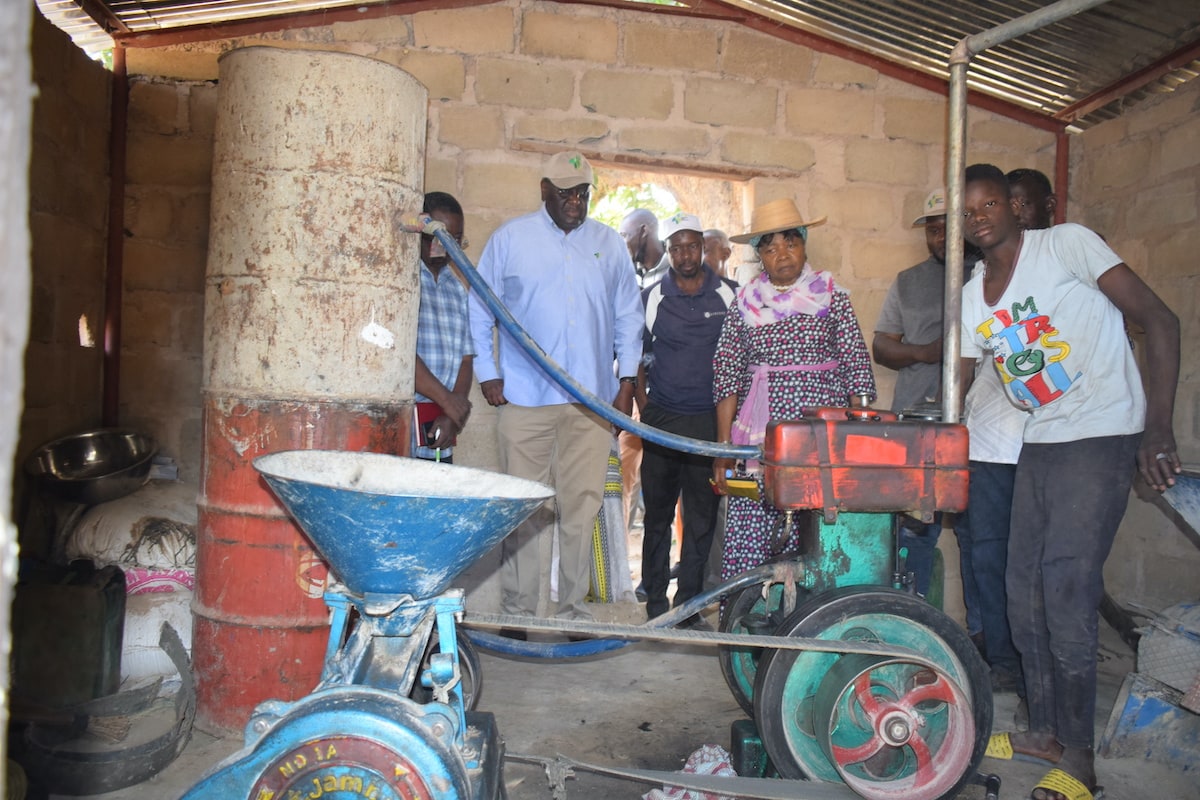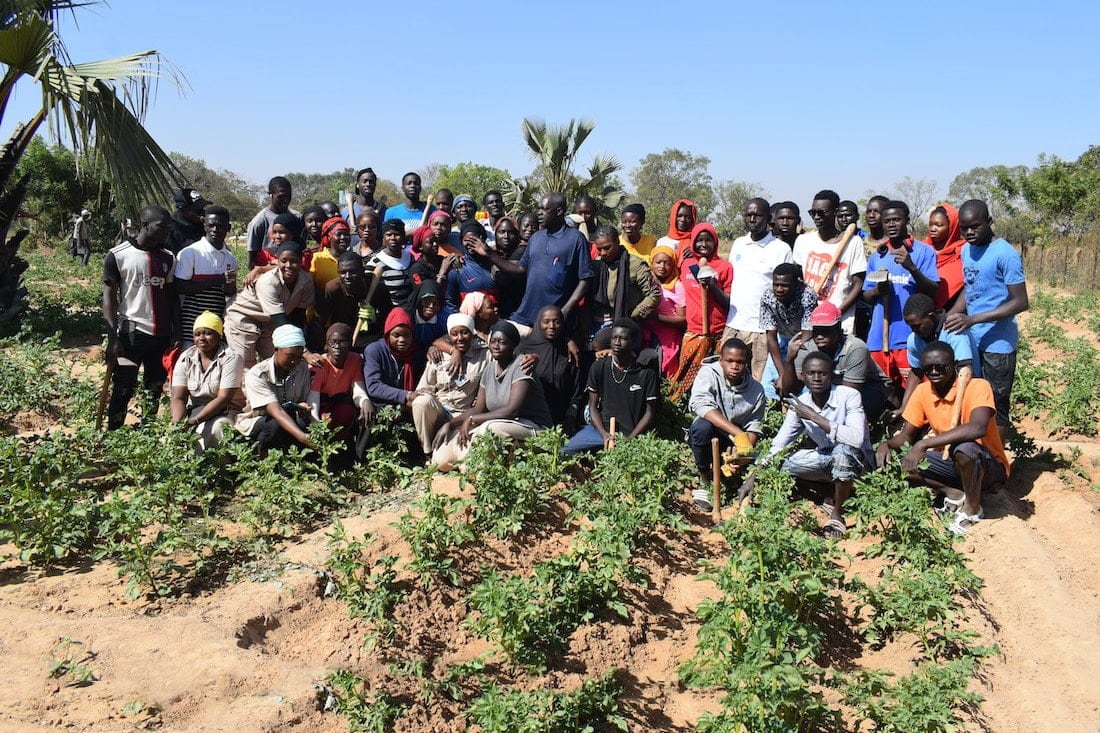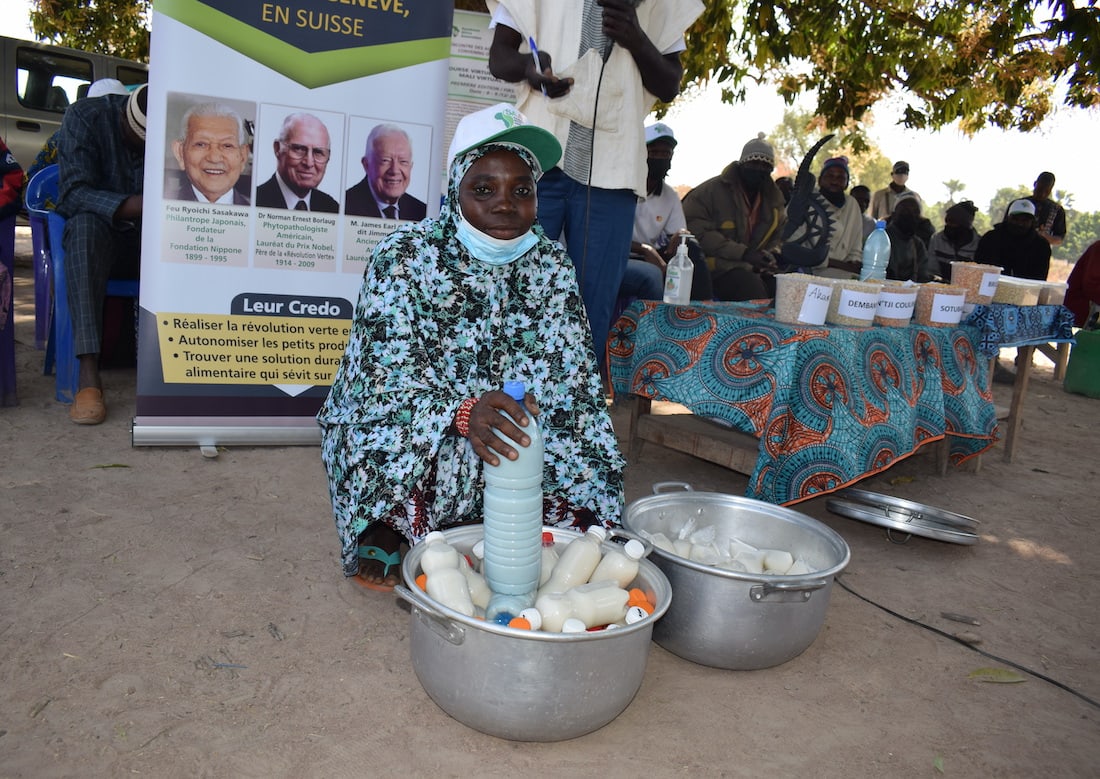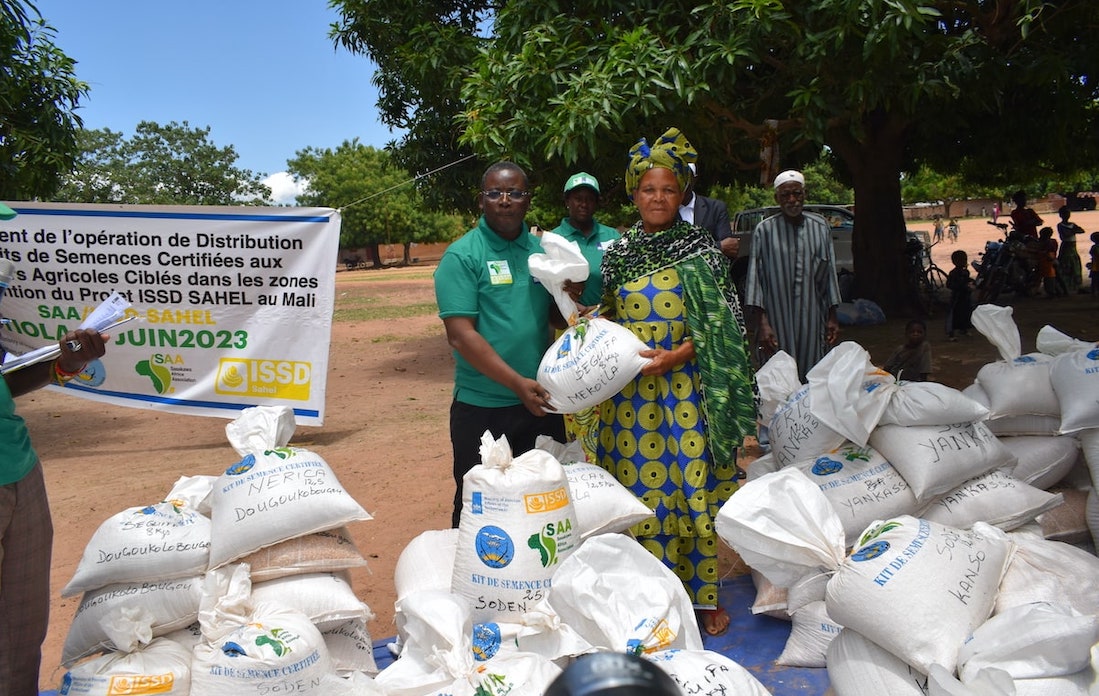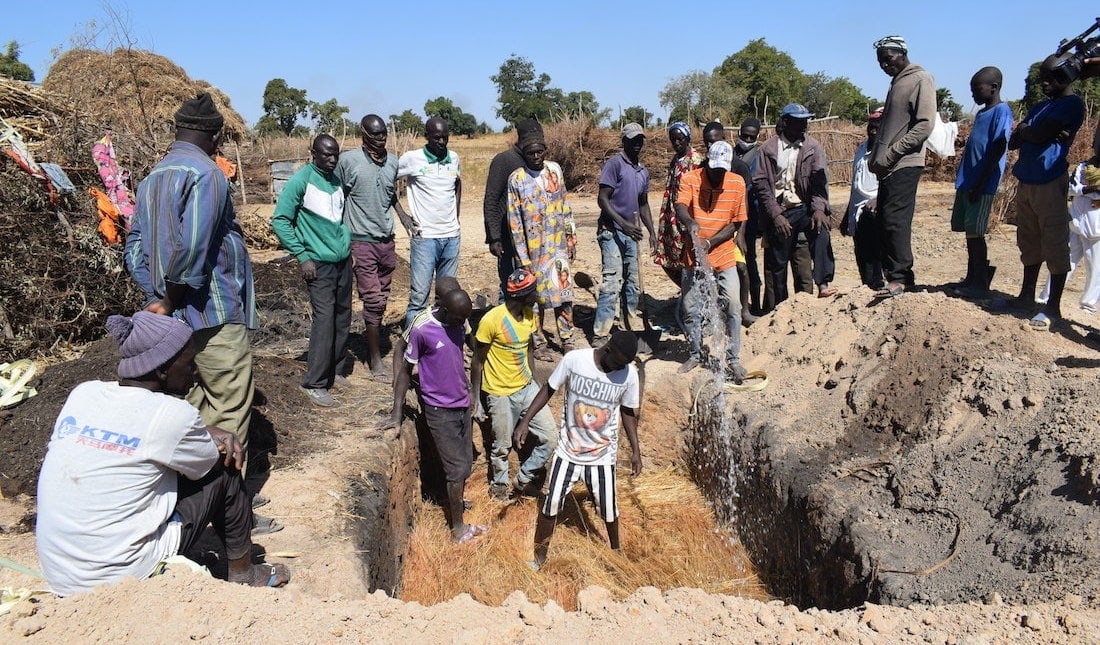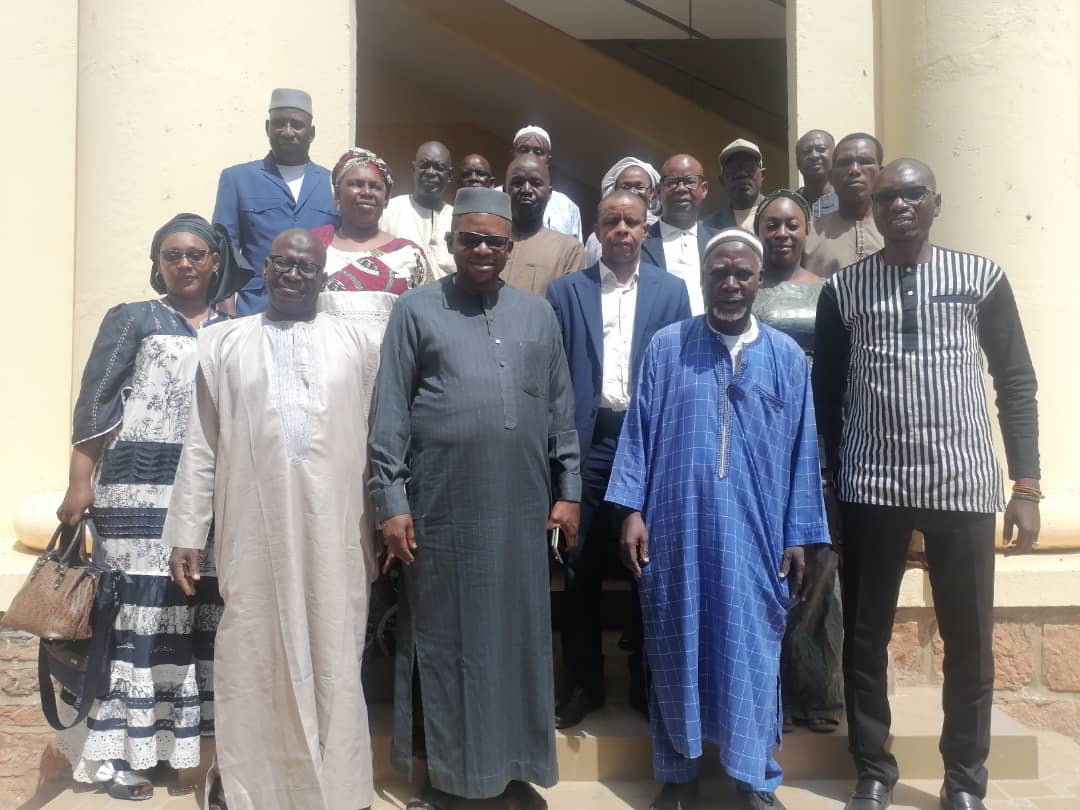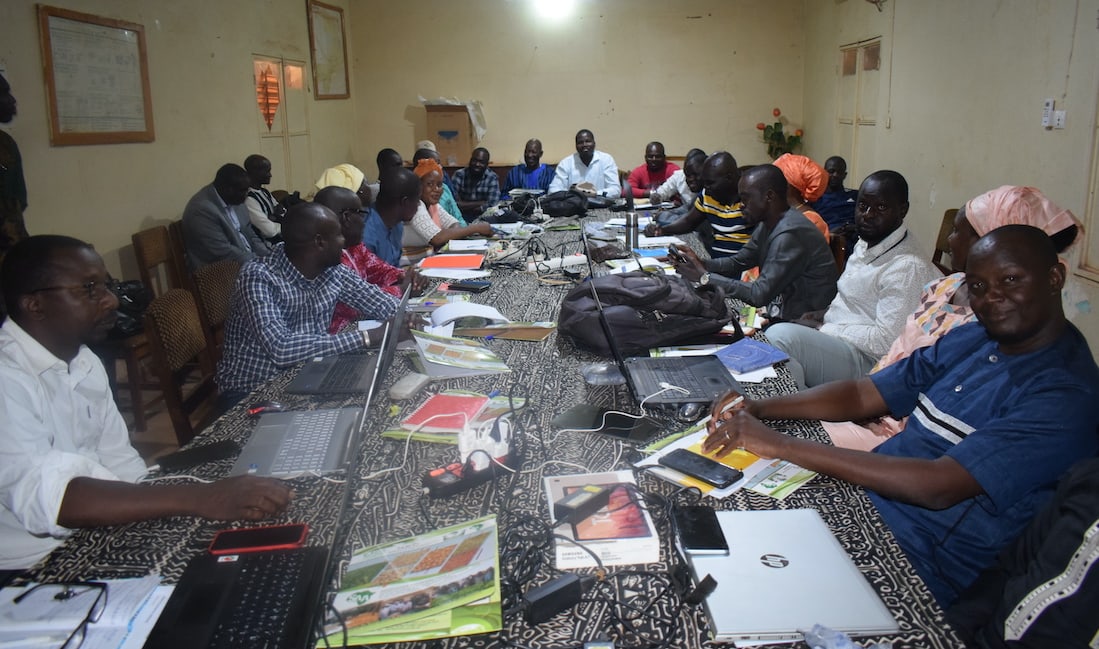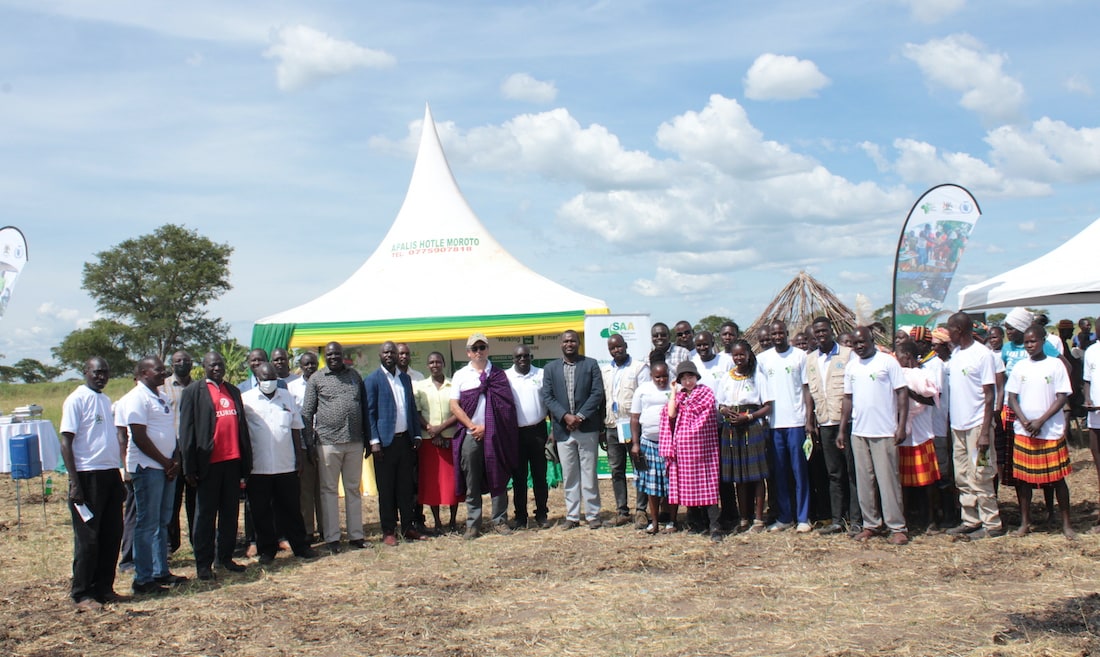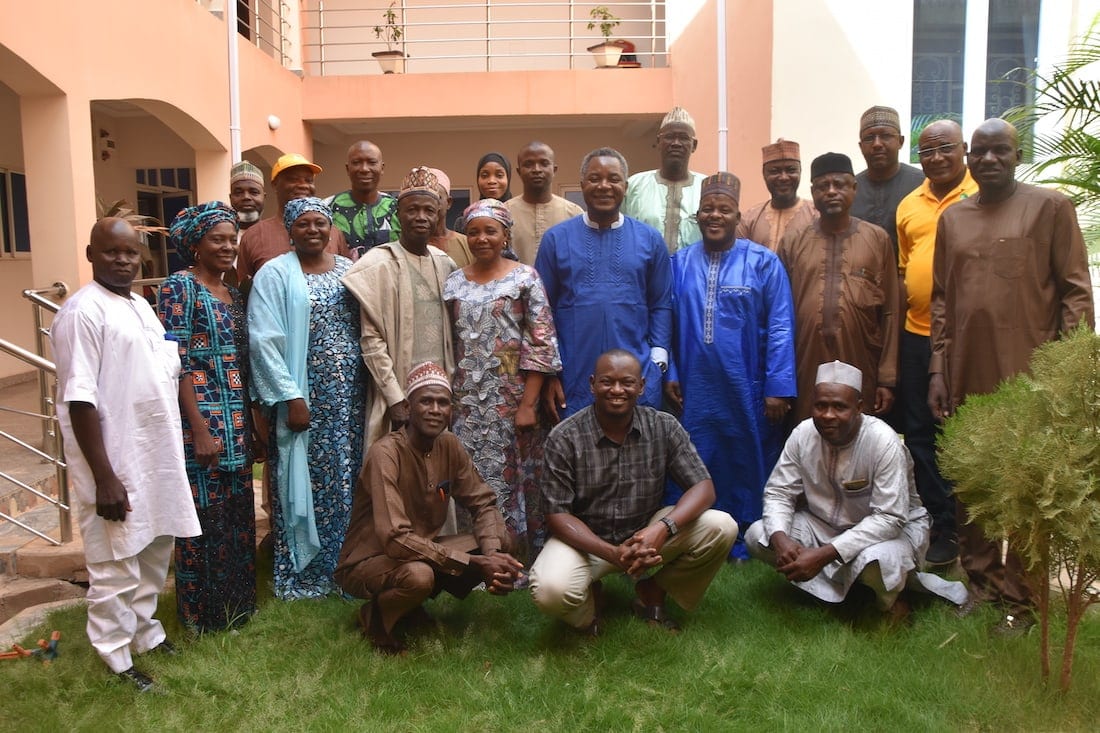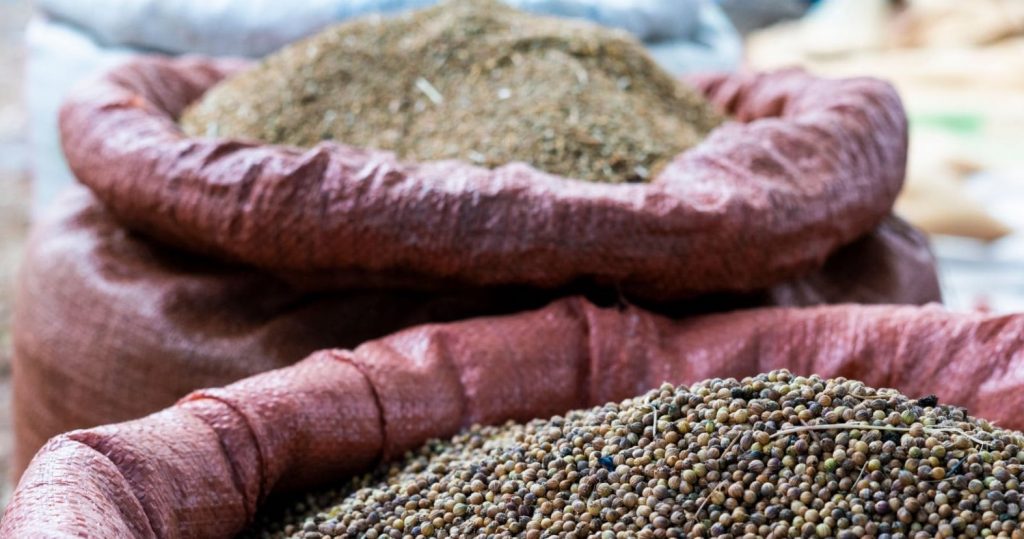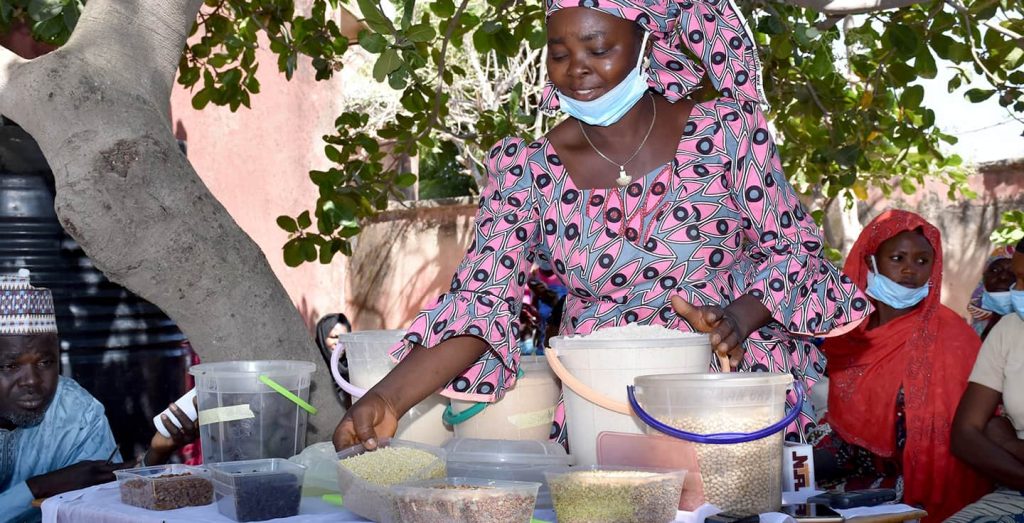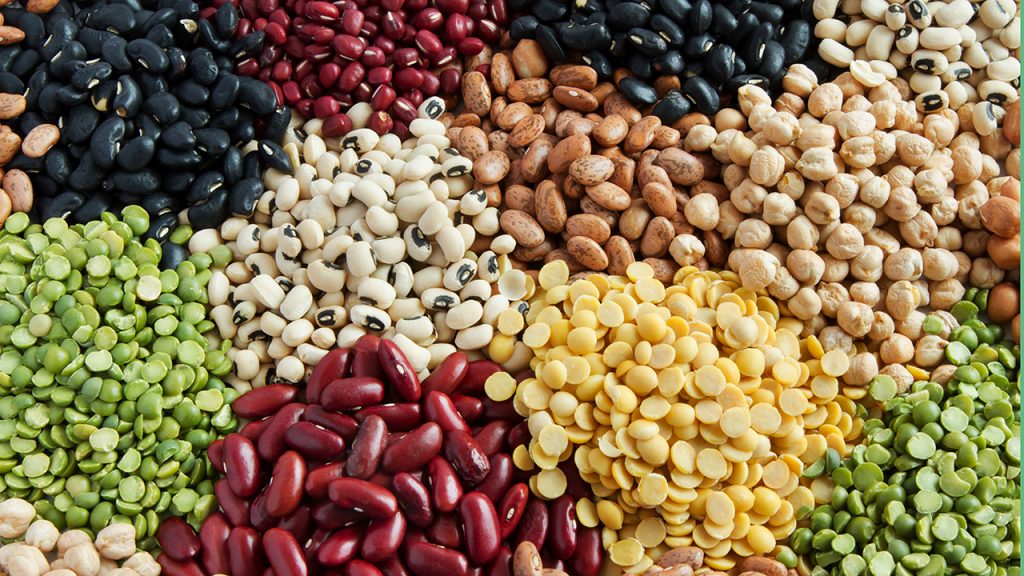Focus on Mali
July 2023
Message from Country Director
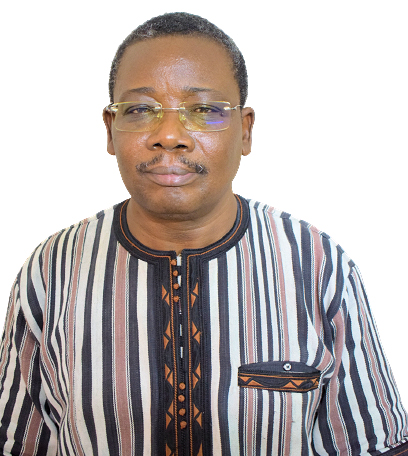
Message from Country Director
Dear Readers,
I am delighted to present this special edition of our newsletter, which is dedicated to showcasing the highlights of SAA’s activities and interventions in Mali.
Our work in Mali is centered around nine Postharvest, Trading, and Training Centers (PHTCs). These centers serve as pivotal hubs for disseminating knowledge, building capacity, and providing practical training for farmers. We are steadfast in our commitment to promoting regenerative agriculture practices, aimed at restoring and enhancing the natural resources and biodiversity within farming systems.
Furthermore, our market-oriented agriculture initiatives are designed to strengthen value chains, enhance market accessibility, and empower farmers to engage in profitable agricultural enterprises. We believe that fostering entrepreneurship and market linkages can amplify income opportunities for smallholder farmers and contribute to their economic prosperity.
In addition, our nutrition-sensitive agriculture interventions emphasize the integration of diverse and nutritious crops into farming systems. This approach is aimed at improving dietary diversity and addressing the challenges of malnutrition.
Through the concerted efforts of our dedicated team, partners, and the support of farmers, we have witnessed encouraging outcomes and impacts in the communities we serve. This special issue brings you inspiring success stories and testimonials from farmers and other value chain actors who have reaped the benefits of our interventions.
I wish to express my gratitude to all stakeholders, including farmers, local communities, government agencies, and our esteemed partners, for their unwavering support and commitment. Together, we are striving to build resilient and sustainable food systems that will contribute to the growth and prosperity of Mali.
Let us continue to empower African farmers and nurture thriving communities.
Sincerely,
Hamado Tapsoba, PhD
Country Director, Mali
Featured Message
Featured Message
Leadership change
We are pleased to announce that as of July 1, 2023, Dr. Amit Roy has assumed the position of Board Chair for the Sasakawa Africa Association (SAA). Dr. Roy brings a wealth of experience and expertise to this role, and we look forward to his leadership in guiding SAA toward its mission of building a resilient and sustainable food system in Africa. We would also like to take this opportunity to thank our former Board Chair, Hon. Prof. Ruth Oniang’o for her dedication and leadership for the past 13 years.
See more here.
A message from Dr. Amit Roy, Board Chair
Dear friends and partners,
First and foremost, I extend my heartfelt appreciation to Hon. Prof. Ruth Oniang’o, my predecessor and a dear friend, for her exceptional leadership and unwavering dedication to SAA’s mission over the past 13 years. She has been an inspiring figure for all our staff and stakeholders and will continue to be one in her new role as an Honorable Advisor.
As I have known Dr. Norman Borlaug, and his achievements of establishing SAA with Mr. Ryoichi Sasakawa and President Jimmy Carter, I feel a profound sense of responsibility and commitment to advancing SAA’s vision of fostering resilient and sustainable food systems in Sub-Saharan Africa. To date, SAA has accomplished remarkable success in empowering smallholder farmers and improving their livelihoods through enhanced agricultural extension and advisory services, in collaboration with host governments.
I will be based at the Sasakawa Peace Foundation USA (SPF-USA) building in Washington DC. This move provides us with a unique platform to cultivate partnerships, advocate for resilient and sustainable food system in Africa, and address critical global challenges such as climate change and rising input costs.
I firmly believe in the power of innovation, knowledge sharing, and partnerships to drive agricultural transformation in Africa. Working alongside dedicated SAA staff, our esteemed partners, and the broader community, we will scale up successful initiatives and pioneer new approaches that empower farmers and contribute to sustainable food systems.
Thank you for your steadfast support, and I am enthusiastic about embarking on this remarkable journey together.
Warm regards,
Dr. Amit Roy, Board Chair
Voices from the Field
Voices from the Field
SAA transforms rural cooperative
Two years after SAA delivered a sheller to the Nieta Cooperative in the Kamalé Kakélé Village of Western Mali, there is evidence of empowerment and progress. The sheller was acquired with matching fund from the SAA with the Cooperative contributing 20% of the cost.
The Samanko Post Harvest and Trading Center (PHTC), from where the cooperative operates, today buzzes with energy and purpose as the Nieta members work tirelessly to enhance the quality of product like maize, millet, sohum, date and shea.
The production is run by four individuals, carefully chosen and trained under SAA’s Private Extension Service Provision (PESP) model, to provide post-harvest services to neighboring communities.
Inspired by early business success, the members of the Nieta Cooperative, recently expanded their services by procuring a mill that not only presented a new chapter in their business but also became a pivotal turning point for the entire community.
“The cooperative’s relentless efforts are today bearing fruit, and we make monthly profits ranging from USD 83 to USD 108, a testament of our boundless potential,” said the cooperative’s manager, Modibo Keita.
Yet it is not just about the money; the impact has gone beyond the bottom line, with the cooperative bringing immeasurable relief to the community members, who no longer have to embark on long, arduous journeys in search of milling services.
Such are the benefits of the PESP, which seeks to promote SAA’s Market-oriented Agriculture (MOA) strategy, while minimizing postharvest losses in rural areas. Through the PESP, SAA helps groups and individuals to acquire post-harvest/agro-processing machinery such as grain hullers and flour mills, enabling them to provide value-added services to their communities.
Voices from the Field
Voices from the Field
Samanko’s garden becomes a center of discovery for students
The sun-drenched fields of the Samanko Agricultural College Center are alive with vibrant greenery from an inspiring vegetable garden comprising okra, potatoes, onions, and carrots. The garden is at the heart of the newly established Enterprise Center (EC), a visionary project made possible by SAA-Mali’s unwavering support as part of its contribution for innovation, learning, and entrepreneurship.
At the EC, students embrace the learning-by-doing model, plunging their hands into the soil and enjoying the rewards of their efforts. The irrigation equipment provided by SAA-Mali allows them to cultivate crops effectively, demonstrating transformative power of technology in agriculture.
The EC has also grown to be a source of inspiration for the surrounding communities, introducing members to the principles of Market-oriented Agriculture (MOA), as envisioned by JICA’s Smallholder Horticulture Empowerment and Promotion (SHEP) and SAA’s visionary “Grow to Sell” strategies. These strategies aim to enhance farmers’ entrepreneurial skills, breaking the cycle of poverty, and improve household nutrition at the community level.
Seydou Coulibaly, a supervisor at the Agricultural Learning Center (CAA) of Samanko, proudly praises the EC as a key platform that bridges the gap between theoretical learning and practical application.
“The Enterprise Center has become a springboard for many graduates, fueling their passion for agricultural entrepreneurship. These enterprising individuals have returned to their communities as beacons of change, not just as job seekers, creating job opportunities for the youth where none existed before,” he said.
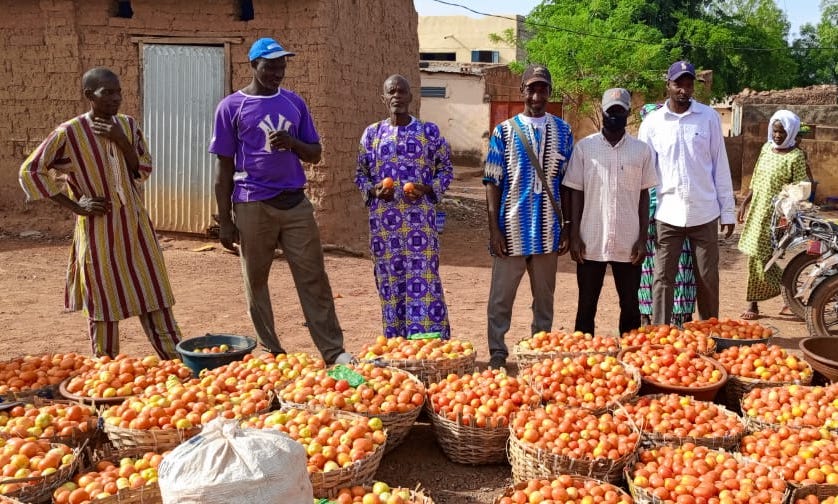
Voices from the Field
Voices from the Field
SAA’s SHEP training sets Malian farmers on a journey to prosperity
Sounkoura Traore, a member of the Mintiguila Cooperative, based in the Koulikoro region of Western Mali, says the training he received from SAA under the Smallholder Horticulture Empowerment and Promotion (SHEP) strategy has transformed his outlook of agriculture, and improved his income.
The SHEP model was adopted by SAA from the Japan International Cooperation Agency (JICA) to influence smallholder farmers’ production by placing market demand at the center of all their operations.
Under the expert guidance of SAA, 40 vegetable producers, including 20 women, from Koulikoro’s Guessebougou and Mintiguila cooperatives were equipped with the knowledge on market survey techniques, crop selection strategies, and the art of crop calendar implementation.
With newfound insights into customer preferences and needs, Traore and his fellow farmers have forged invaluable relationships with their target buyers, securing a sustainable market for their produce.
“I have been engaged in farming for more than 20 years but had never considered what customers want. But with the knowledge I learned from SAA on the SHEP concept, I learned that I need to first find customers and then produce knowing that I have somewhere to sell,” Traore said.
For the training on market survey, the producers selected profitable vegetables (tomato, bell pepper, and onion), which they cultivated after the SAA equipped them with 5.8 kg of improved seeds, 6 tons of manure, 20 plastic watering cans, 6 rolls of fences, and technical support on good agronomic practices and post-harvest management. After harvest, the farmers generated USD 1,739 in product sales, including USD 1,631 from 0.33ha of tomatoes and USD 108 from 0.14ha of bell pepper. The income enabled the Mintiguila Cooperative to set up a revolving fund for its members to purchase agricultural inputs.
“During the market survey, we made good relationships with customers enabling us grow knowing that we have customers. I now earn enough money to cover the school fees for my children and also contribute to the upkeep of my family,” said Traore.
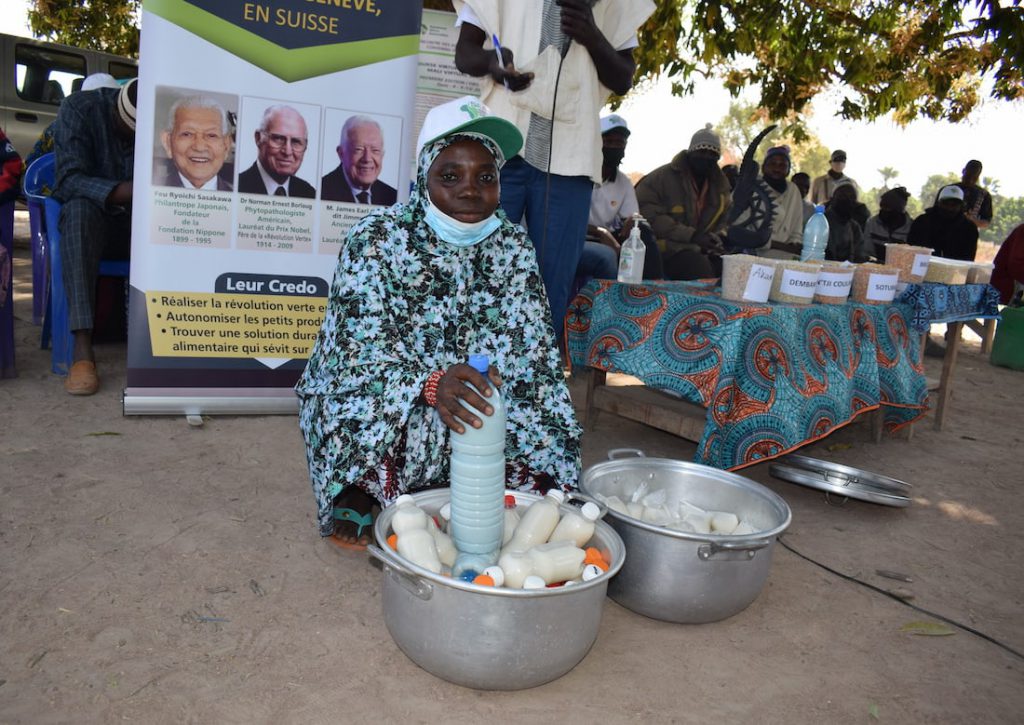
Voices from the Field
Voices from the Field
Malian farmers’ life transformed through kaba nônô processing
Just five years ago, Mrs. Sanata Coulibaly Kone, from the Koloni-Boundio Village in South-west Mali, was struggling to take care of her family, as she entirely relied on her husband, a person living with disabilities.
However, things changed for her when she attended a one-week SAA training in 2017, which covered the processing of maize into yogurt, locally called kaba nônô, and fonio into doughnuts, cakes, and biscuits. Eager to change the fortunes of her family, Sanata started an enterprise around the production of maize yogurt, which she sells within her village and during the weekly market at Boundioba, a neighboring village 3km away.
She makes the yogurt from a specific white maize variety, “Dembagnuma”, which contains high levels of essential nutrients such as zinc, protein, and Vitamin A. The maize used is partly sourced from her own production and other farmers in her village cooperative.
Today, Sanata processes 2.85 kg of maize to produce 28 bottles of 33cl yogurt, which she sells at FCFA 250 per unit. This generates her a daily net profit of FCFA 3,580 (USD 5.85) for total of FCFA 25,060 (USD 40.94) per week.
“These increasing revenues have enabled me to comfortably take care of my family’s daily expenses, pay my dues to the cooperative and other social groups, purchase agricultural inputs, and cover other expenses for my maize and rice farms, while relieving my husband of some responsibilities,” she said.
In 2022, she opened an account with a local bank, where she is saving towards expanding her business, for increased income and the creation of employment opportunities for others in her community.
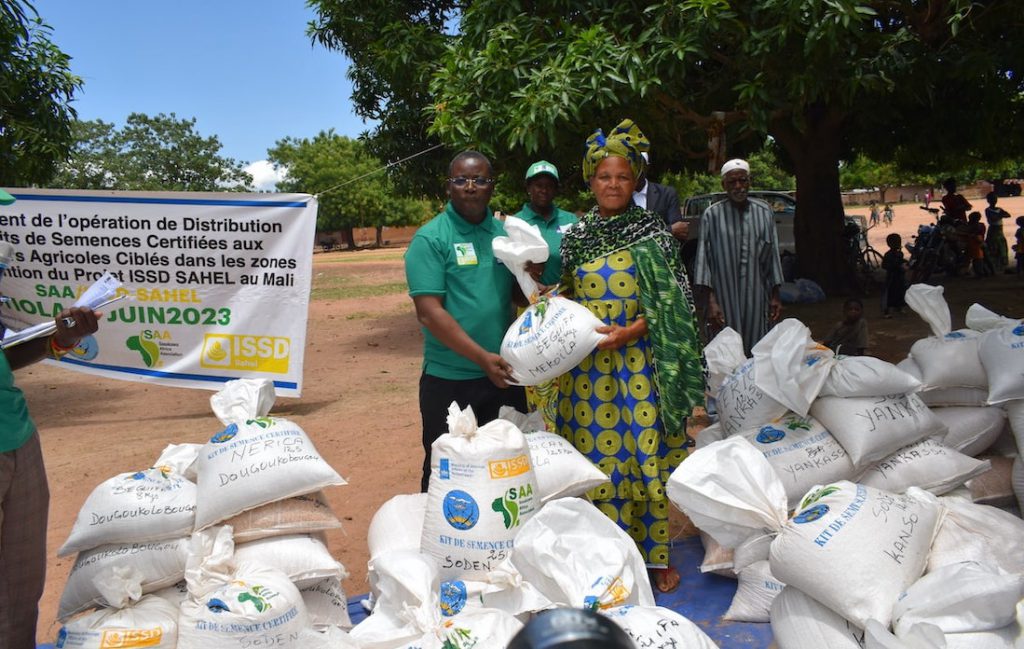
Activities
Activities
Quality seed distribution aims to improve food and nutrition security
On June 13, 2023, SAA conducted a seed distribution program covering the Tiolo Post Harvest and Trading Center (PHTC) in Sikasso, south of the Malian capital, Bamako. A total of 31,331 kg certified seed of rice, pearl millet, sorghum, maize, groundnut and cowpea were distributed to 3,000 farmers in 13 distribution centers – Siranikoto, Kita, Guessebougou, Didieni, Dioumara, Monzomblena, Segou, Bla, San, Sikasso, Tiola, Koloniboudio and Bougouni.
The seed distribution initiative is implemented by a consortium comprising SAA, IFDC, ICRISAT and KIT Royal Tropical Institute, under the four-year ISSD Sahel project, funded by the Dutch Embassies in Mali and Niger. The project aims to improve food and nutrition security of rural and urban households, rural employment and the income of rural households.
The Sikasso distribution took place in the presence of representatives of the Ministry of Rural Development at the national, regional and district levels, as well as local authorities. Leaders of farmers’ cooperatives from the 10 villages covered by the Postharvest and Trading Center (PHTC), and SAA’s country director and technical teams were also in attendance.
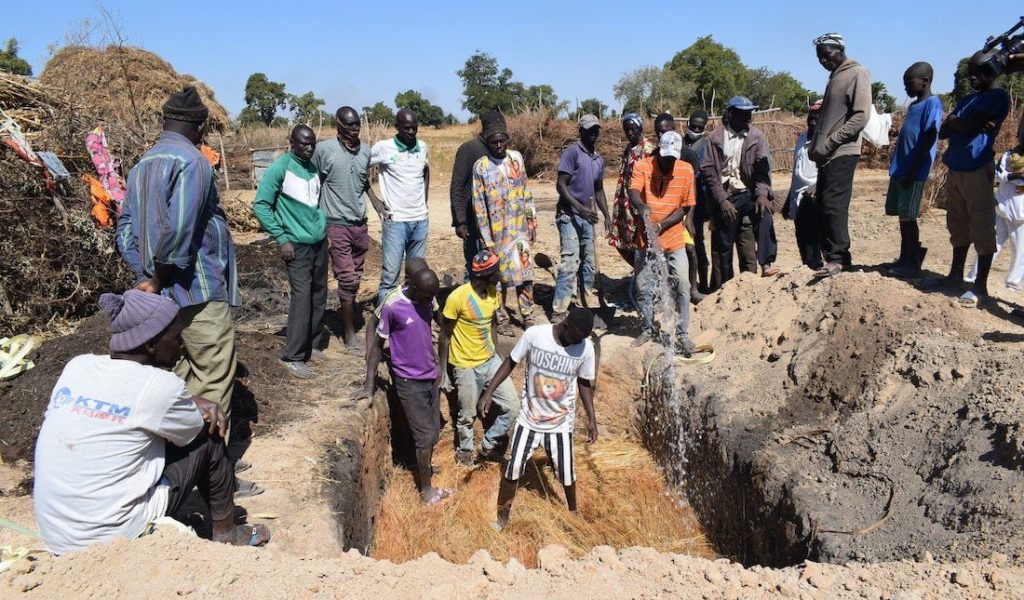
Activities
Activities
Guessebougou farmers get hands-on training on compost production
In May 2023, farmers in the Guessebougou Postharvest and Trading Center (PHTC) extracted eight tons of compost from a pit they set up in December 2022, as part of the SAA’s Regenerative Agriculture (RA) initiative. The compost was enough to cover 2.5 hectares of land.
The initiative aims to raise awareness on the benefit of compost in sustaining higher crop yields and reducing farmers’ overreliance on inorganic fertilizers. The training sought to show farmers how to enhance soil fertility through the proper integration of crops and livestock, while limiting the expenditure on expensive inorganic fertilizers.
A total of 40 farmers, including 20 women, from 10 villages learned about the steps for producing high-quality compost using locally available crop residues and animal manure.
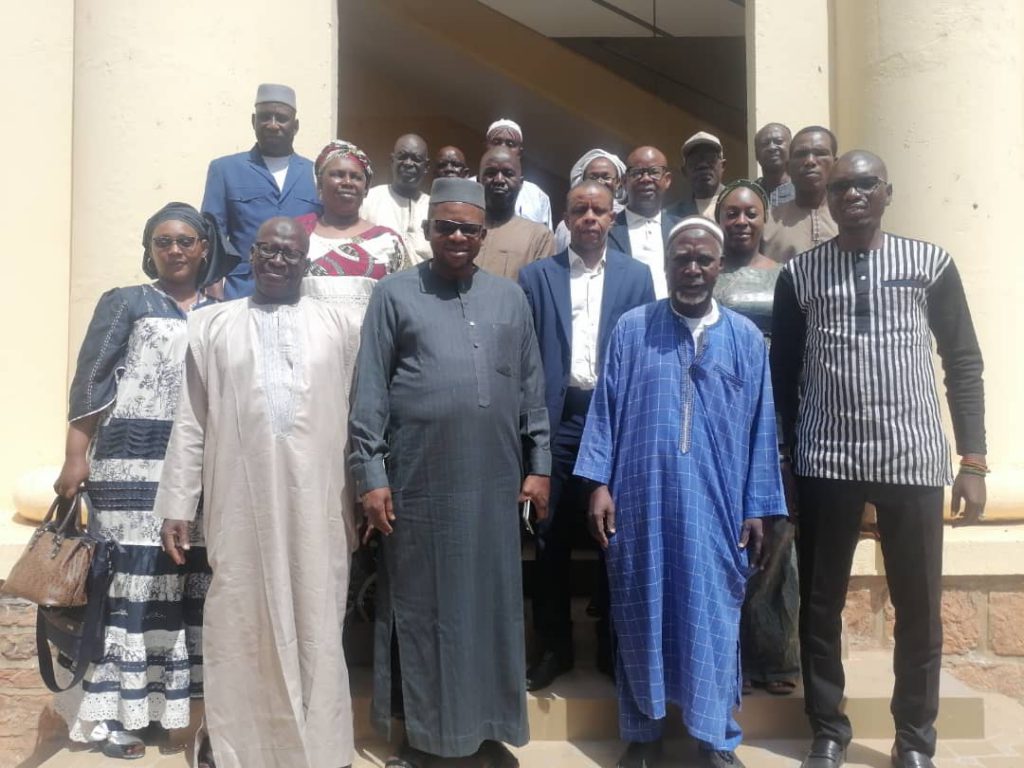
Activities
Activities
Community Based Seed Multiplication Model integrated into Malian Agricultural College curricular
The SAA’s Community Based Seed Multiplication (CBSM) model will, starting this year, be integrated in the training programs for agricultural extension agents by all agricultural colleges in Mali. This is following its approval during a curriculum revision session held in March.
The model seeks to involve smallholder farmers, who normally cultivate crops for sustenance and trade, in the production of high-quality seeds for reproduction.
A validation exercise held in January, by SAA and other partners, including representatives of the government, academia and development organizations, confirmed CBSM to be an effective approach for enhancing access to improved seed by farmers in their localities.
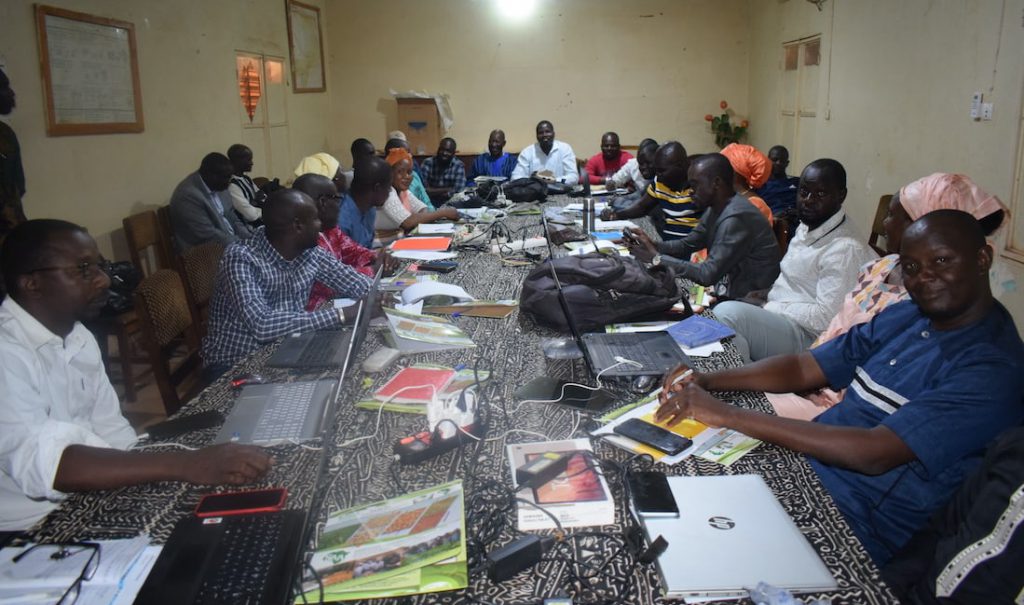
Activities
Activities
Cutting-edge data skills empower partners
As part of its efforts to enhance its monitoring and evaluation systems, SAA organized a training on Kobo Toolbox, a mobile app for primary data collection. The training also covered data analysis using Microsoft’s Excel and IBM’s SPSS.
The workshop acquainted SAA partners, including extension agents (EAs) and Community Association Traders (CATs), with skills on data collection and management. The program covered the design of questionnaires, and collection and management of data using the Kobo Toolbox platform, as well as analysis of the collected data in Microsoft Excel and SPSS.
The two-day workshop was attended by 39 participants, including six women. Thirteen of the participants were CATs and 20 were EAs, while six were SAA technical staff, drawn from Bamako, Sikasso, Koulikoro, Segou, Bougouni, Kita, and Kayes. The attendance represented the national, regional, sector, and sub-sector levels of agriculture.
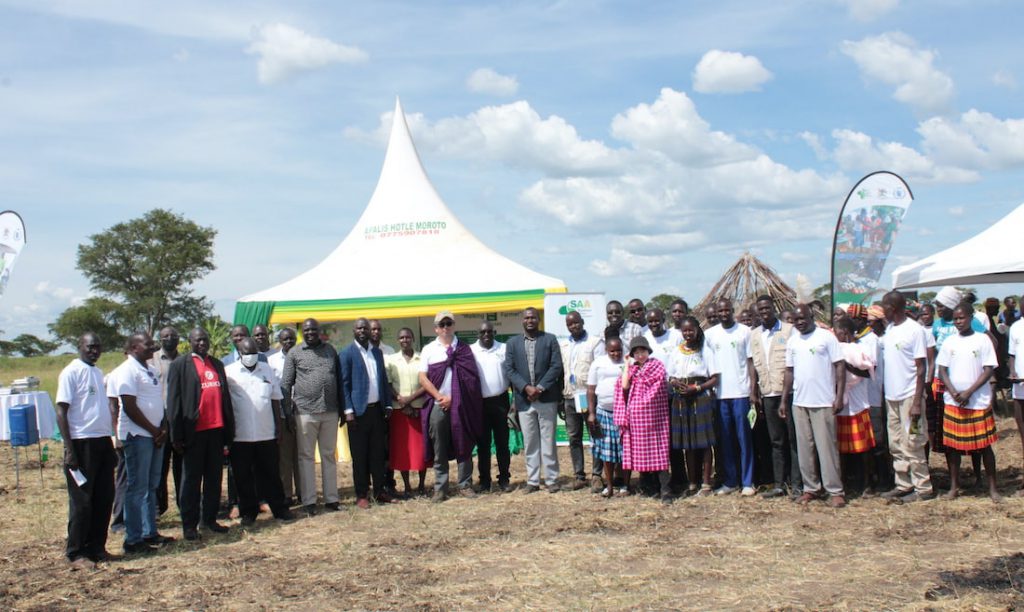
Activities
Activities
One-Stop Center Associations breaks ground in Uganda
On May 29, 2023, SAA organized a groundbreaking ceremony for the construction of One Stop Center Associations (OSCAs) for two Multipurpose Agricultural Cooperatives in Uganda. Japan’s Ministry of Foreign Affairs is funding the establishment of the centers in the northeastern districts of Kole and Napak. Partners and local government officials attended the ceremony.
Each center will be equipped with a bulking store, office, irrigation facility, agro-input shop, a maize mill, a maize huller, a generator, and a one-acre plot for vegetable production to promote market-oriented agriculture.
SAA’s Deputy Country Director, Joseph Bbemba, announced that the One-Stop Agricultural Centers will enhance agricultural development in the districts, providing farmers with the tools, knowledge, and services for productivity and profitability, helping reduce poverty, and improve food security.
The centers demonstrate the importance of support to the government’s efforts in modernizing agricultural value chains, as a way of promoting sustainable agriculture development in the country.
For the full story, please visit.
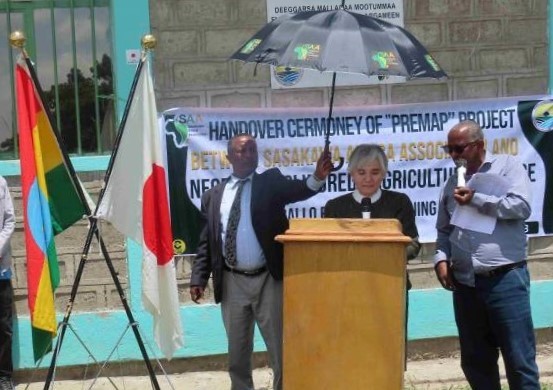
Activities
Activities
Unveiling of new agricultural production facilities in Ethiopia
On May 29, 2023, SAA held an inauguration ceremony for facilities established under the Pro-Environment Market-oriented Agriculture Promotion Project (PREMAP-I) at the Turge Galo Farmers’ Training Center in Ethiopia’s Oromia region.
Funded by the Government of Japan, the project, provides agricultural facilities, including training rooms, a greenhouse, a water pond equipped with AI-powered IoT solutions, solar-powered water pumps, and drip irrigation kits. The project also facilitates rainwater harvesting and year-round vegetable production training for farmers. The facilities, which were officially handed over to the district, will support various agricultural activities, serving a community of over 6,000 people.
In her speech, Japanese Ambassador to Ethiopia, H.E. Ito Takako, highlighted Japan’s commitment to supporting Ethiopia’s agricultural development. This was as Mrs. Yenenesh Egu, the Lead Executive for Crops and Horticulture Extension at the country’s Ministry of Agriculture, emphasized the need for the initiative’s continuity in transforming the community’s agricultural prospects.
Meanwhile, SAA-Ethiopia’s Country Director, Dr. Fentahun Mengistu, stressed the need for the diligent monitoring of the project’s activities, urging extension professionals in the district to provide timely and coordinated services to the community.
For the full story, please visit.
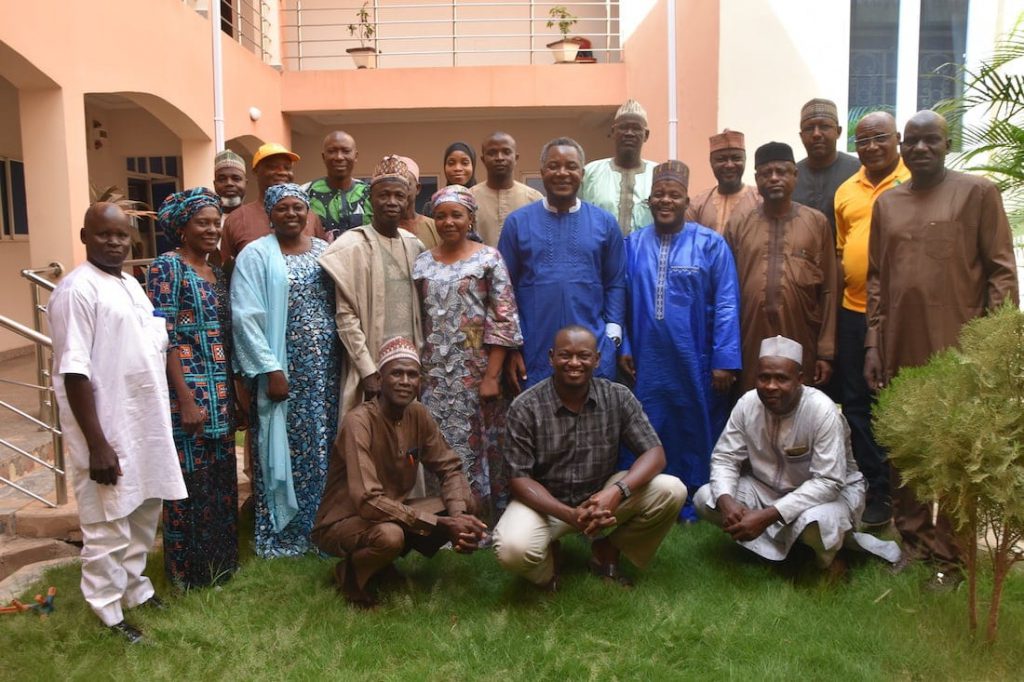
Activities
Activities
SAA teams, partners meet in collective review session for alignment of plans in Nigeria
On May 23-24, 2023, SAA Nigeria’s technical team joined the States and Zonal Coordinators in Zombe State for a quarterly review meeting, where SAA presented activities carried out in the preceding quarter, and its plans for the next one. This was followed by presentations by State Coordinators, paving the way for in-depth review of interventions.
It was noted that SAA’s strategies, especially the introduction of new improved varieties, the use of compost, and training on Good Agricultural Practices (GAPs) are contributing significantly to the improvement of yields, incomes and livelihoods of people in the region.
The Permanent Secretary of the Gombe State Ministry of Agriculture and Rural Development, Dr Ibrahim Yakubu, lauded SAA, which he described as a major pillar in the support of agricultural extension in his state through innovative farm technologies.
SAA Nigeria’s country director, Dr Godwin Atser, emphasized the importance of collective review sessions in tracking progress, identifying areas of improvement, and the necessary adjustments needed for planning, as well as the thematic approaches, and administrative, logistical and input distribution plans for the successful implementation of projects.
